#top oncologists in dwarka
Text
INNOVATIONS TRANSFORMING CANCER TREATMENT: A LOOK AT CUTTING-EDGE TECHNOLOGIES
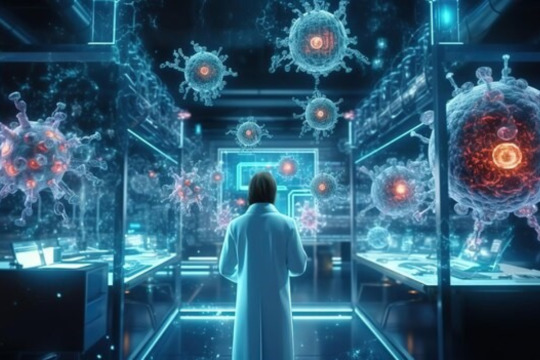
In the realm of cancer research, what once seemed like science fiction is now a tangible reality, all thanks to a myriad of technological advancements. These innovations are not just changing the way we perceive cancer treatment but are actively accelerating progress against this formidable disease. In this given blog Dr Ashish Gupta will help you understand some groundbreaking technologies that are reshaping the landscape of cancer care and ushering in a new era of hope and possibility.
Artificial Intelligence (AI)
Imagine having a digital twin- a virtual representation of yourself – crafted through sophisticated AI algorithms to help physicians tailor treatment plans with unparalleled precision. This futuristic concept is now within reach, thanks to the remarkable capabilities of artificial intelligence. By sifting through vast troves of data, AI can pinpoint patterns, aiding in cancer diagnosis, drug development, and personalized medicine. As per Dr Ashish Gupta, USA trained, American board-certified medical oncologist, Chief of Medical Oncology, Unique Hospital Cancer Centre, Dwarka India, whether it’s analyzing imaging data or predicting treatment outcomes, AI is poised to revolutionize every facet of cancer care, promising transformative advancements on the horizon.
Telehealth
In an age where connectivity reigns supreme, telehealth emerges as a beacon of hope, seamlessly bridging the gap between patients and cancer care providers. Especially crucial in the midst of a pandemic, telehealth has become instrumental in delivering cancer treatment and running clinical trials remotely. From remote health monitoring to video consultations, telehealth not only enhances accessibility but also ensures safety and convenience for patients and providers alike. However, the journey towards equitable telehealth access poses its own set of challenges, underscoring the ongoing need for research and innovation in this domain.
Cryo-Electron Microscopy (Cryo-EM)
Peer through the lens of cryo-electron microscopy, and you’ll behold a world of molecular intricacies previously unseen. With unprecedented resolution, Cryo-EM enables researchers to delve into the inner workings of molecules, unraveling the mysteries of cancer cell behavior and therapeutic interactions. Recent breakthroughs, such as visualizing drug interactions at the molecular level, exemplify the transformative potential of Cryo-EM in shaping future cancer treatments. As access to this cutting-edge technology expands, so too does our understanding of cancer biology, paving the way for targeted interventions and personalized therapies.
Infinium Assay
The secrets encoded within our genes, the Infinium Assay emerges as a powerful tool in deciphering the genetic underpinnings of cancer. By scrutinizing millions of genetic variations, this innovative assay sheds light on cancer risk, progression, and development. Initially met with skepticism, its journey from conception to widespread adoption showcases the tangible impact of taxpayer-funded innovation. From cancer research to population-wide genomic studies, the Infinium Assay holds immense promise in unraveling the genetic tapestry of cancer and beyond.
Robotic Surgery
Enter the realm of robotic surgery, where precision meets innovation to redefine the surgical landscape. With robotic arms wielding scalpel-like precision, complex cancer surgeries become minimally invasive affairs, offering patients faster recovery times and reduced postoperative discomfort. Beyond the allure of futuristic technology, robotic surgery epitomizes the marriage of precision and compassion, offering renewed hope to cancer patients worldwide.
Conclusion
As we stand at the precipice of a new era in cancer treatment, fueled by cutting-edge technologies, the future holds boundless promise and potential. From AI-driven personalized medicine to the precision of robotic surgery, each innovation represents a stepping stone towards a world where cancer is not just treatable but conquerable. By embracing and harnessing these transformative technologies, we embark on a journey towards a brighter, healthier tomorrow- one where cancer is no longer a formidable adversary but a conquerable challenge. If you are searching best cancer treatment, contact Dr Ashish Gupta, USA trained, American board-certified medical oncologist
#best oncologist in delhi ncr#best oncology doctor in delhi#cancer tratment in dwakra#unique cancer hospital#top oncologists in dwarka#cancer doctor in delhi#best doctor for breast cancer#USA Second Opinion
0 notes
Text
Brain Tumor Treatment in Dwarka, Delhi

lh7-us.googleusercontent.com
Brain tumors are complex medical conditions that require a thorough deep understanding for accurate diagnosis and effective treatment with high success rate. In this article, top neurosurgeon in delhi explains different types of brain tumors, their symptoms, and different treatment options
Types of Brain Tumors
Brain tumors are mainly classified into two types:
primary brain tumors
secondary brain tumors (metastatic tumors).
Primary brain tumors originate in the brain only, while secondary tumors result from the spread of cancer from different parts of the body.
Primary Brain Tumors
Gliomas: Gliomas are the most common primary brain tumors, arising from glial cells. Subtypes of gliomas include astrocytomas, oligodendrogliomas, and ependymomas.
Meningiomas: Meningiomas develop from the meninges, the protective membranes surrounding the brain and spinal cord.
Pituitary Adenomas: These tumors arise from the pituitary gland, which plays a crucial role in hormone regulation
Schwannomas: Schwannomas originate from Schwann cells of the peripheral nerves and can affect the cranial nerves.
Medulloblastomas: Common in children, medulloblastomas are fast-growing tumors that occur in the cerebellum.
Secondary Brain Tumors (Metastatic Tumors)
Secondary brain tumors result from cancers originating in the lung, breast, skin (melanoma), kidney, and colon. They spread to the brain through the bloodstream or the lymphatic system.
Symptoms of Brain Tumors
The symptoms of brain tumors vary depending on their location, size, and growth rate. Common symptoms include:
Headaches: Persistent, severe headaches that may worsen over time or wake the patient up at night. Seizures: Unexplained seizures, especially in individuals with no history of epilepsy.
Neurological Deficits: Weakness, numbness, or loss of sensation in limbs, difficulty with balance and coordination, changes in vision or speech, and cognitive impairments.
Nausea and Vomiting: Especially in the morning or without any apparent cause.
Personality and Behavioral Changes: Irritability, mood swings, and altered personality traits.
Cognitive Decline: Memory problems, difficulty concentrating, and confusion.
These symptoms can also be associated with other medical conditions. Thus, a thorough neurological evaluation and imaging tests are necessary for accurate diagnosis.Diagnosis of Brain Tumors
To diagnose brain tumors accurately, different types of tests are conducted by neurologists and specialists:
Magnetic Resonance Imaging (MRI): MRI is the gold standard for imaging brain tumors, providing detailed images of the brain’s anatomy and abnormalities.
Computed Tomography (CT) Scan: CT scans may be used initially for urgent cases or when MRI is not readily available.
Biopsy: A tissue sample is obtained from the tumor during surgery or with a needle for pathological analysis, aiding in determining the tumor type and grade.
Treatment Options for Brain Tumors
The treatment of brain tumors requires neurosurgeons, neuro-oncologists, radiation oncologists, and supportive care specialists. Common treatment approaches include:
Surgery: Surgical resection aims to remove as much of the tumor as possible while preserving critical brain functions. It is the primary treatment for many benign and some malignant brain tumors.
Radiation Therapy: Radiation therapy uses high-energy rays to target and destroy tumor cells. It is often employed after surgery to eliminate any remaining tumor cells or as the primary treatment for tumors that cannot be surgically removed.
Chemotherapy: Chemotherapy involves using drugs to kill tumor cells or inhibit their growth orally, intravenously, or directly into the cerebrospinal fluid.
Targeted Therapy: Targeted therapies focus on specific molecular characteristics of tumor cells, inhibiting their growth and survival while sparing healthy tissues.
Immunotherapy: Immunotherapy boosts the body’s immune system to recognize and attack tumor cells effectively.
Clinical Trials: Participation in clinical trials offers access to cutting-edge treatments and therapies that are being investigated for their potential benefits.
Brain Tumor Surgery In Delhi
Craniotomy: Traditional open surgery where a section of the skull is removed to access the tumor. It allows direct exposure and removal of the tumor.
Awake Craniotomy: In few cases, patient is kept awake during parts of the surgery to analyse and preserve critical functioning while removing the tumor.
Minimally Invasive Surgery: Endoscopic surgery and stereotactic biopsy minimize trauma to surrounding brain tissue. Endoscopic surgery involve the use of a small camera, while stereotactic techniques use three-dimensional coordinates to precisely target the tumor.
Laser Interstitial Thermal Therapy (LITT): LITT uses laser to heat and destroy tumor tissue. It is used for deep-seated tumors and guided by real-time imaging.
Neuroendoscopy: Neuroendoscopic surgery involve using a small, flexible tube with a camera to access and remove tumors through natural openings like the nose or small incisions.
Image-Guided Surgery: Advanced imaging techniques assists neurosurgeons in this brain tumor surgery.
Ultrasonic Aspiration: Using ultrasonic vibrations to break down and aspirate tumor tissue used specifically for soft tumor removals
Functional MRI (fMRI) and Brain Mapping: It assists neurosurgeons identify functional areas of the brain, allowing to avoid damaging these areas during surgery. Brain mapping stimulates specific brain regions to map functions.
Conclusion
Understanding brain tumors, their types, symptoms, and treatment options is essential for both medical professionals and patients. With a comprehensive grasp of the diverse brain tumor landscape, accurate diagnoses and informed treatment decisions can be made.
Visit the brain tumor specialist in Delhi now
#SPINE DOCTOR IN DELHI#SPINE SURGERY IN DELHI#SCOLIOSIS TREATMENT IN DELHI#NEUROSURGEON IN DELHI#BEST NEUROSURGERY SPECIALIST IN DELHI
0 notes
Text
DR ASHISH GUPTA: Best oncologist in Dwarka | Best Affordable cancer treatment in delhi

Facing a cancer diagnosis is a challenging journey, but having the right oncologist by your side can make all the difference. Dr. Ashish Gupta, the best oncologist in Dwarka, is committed to providing top-quality cancer care that is not only effective but also affordable. If you or a loved one is in need of cancer treatment in Delhi, Dr. Gupta is your dedicated partner in this critical battle.
1. Best Oncologist in Dwarka:
Dr. Ashish Gupta is widely recognized as the best oncologist in Dwarka, Delhi. With extensive experience and a deep understanding of various cancer types, he is a trusted expert in the field of oncology.
2. Affordable Cancer Treatment in Dwarka:
Dr. Gupta is dedicated to making cancer treatment accessible to all. He offers affordable cancer treatment in Dwarka options without compromising on the quality of care. His commitment to providing cost-effective solutions eases the financial burden on patients and their families.
3. Comprehensive Cancer Care:
Dr. Ashish Gupta provides comprehensive cancer care, covering various aspects of diagnosis, treatment, and follow-up care. His patient-centric approach ensures that each treatment plan is tailored to the individual needs and preferences of the patient. For the best oncologist in Dwarka who offers affordable cancer treatment without compromising on quality, Dr. Ashish Gupta is the ideal choice. His expertise, compassionate care, and commitment to accessible healthcare make him the preferred oncologist in Delhi for cancer patients seeking effective and affordable solutions. Schedule an appointment today to begin your journey towards cancer recovery with Dr. Gupta's expert guidance and support. Your well-being is his priority.
0 notes
Text
Pelvic Cancer Hospital in Dwarka Delhi
Dr. Sanjeev Kumar is a highly experienced oncologist specializing in pelvic cancer treatment. With 12 years of expertise, he serves at Manipal Hospital, Delhi, renowned for its advanced medical care. As a leading figure in the field, his dedication and skill make the Pelvic Cancer Hospital in Dwarka, Delhi, a trusted destination for patients seeking top-notch healthcare solutions.
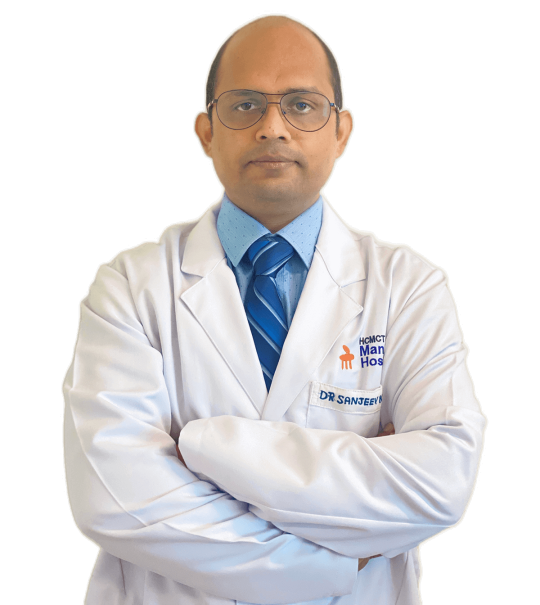
0 notes
Text
Some Tips To Choose Best Gynecologist in Delhi
Whenever it comes time to find a new Gynecologist in Dwarka, whether due to a relocation or a change in health, a woman should take her time to find one who will work well enough for her. There are several factors to consider, including geography, philosophical compatibility, specialty, and whether or not he or she has any openings for new patients. Below are the top tips for selecting this critical medical practitioner.
Best Gynecologist in Delhi with specialisations in infertility, cancer, or obstetrics are common. If you're experiencing difficulty becoming pregnant, you'll want to see a doctor that specialises in infertility. Whether you or a close relative has had uterus or gynaecological cancer, it is a good idea to be paired with an oncologist. If you intend towards becoming pregnant, you should see a doctor who specialises in obstetrics.

On the other hand, if you are certain that you will not have any more children, you should choose a physician whose practise is limited to gynaecology so that you will not have to contend for appointments with schedules that are used up delivering infants.
Insurance: Check to see if a Best Gynecologist in Dwarka accepts your insurance. You don't want to be startled by a large charge for care you thought was included by your health insurance.
Philosophy: If you prefer alternative health therapies and natural care wherever possible, make absolutely sure that your potential doctor shares your beliefs. This would be an excellent topic to address during your initial appointment.
Gender: Some ladies prefer a female doctor for Painless delivery in Delhi, while others prefer a male doctor. Consider your individual preferences while selecting a new gynaecologist.
Consider how far you're willing to travel for your new doctor and narrow down your options with a map in hand.
Availability: Many gynaecologists' practises have reached capacity and are no more accepting new patients. Call before crossing.

When you call a doctor's office, your first impression gives you a decent idea of how the clinic is run. Is the receptionist kind and accommodating? Is she curt and grumpy? A well-run office frequently has happy employees.
Compatibility: Let's face it, you'll be giving some of your most private medical information. Your gynaecologist should be someone you feel more comfortable addressing your most intimate body parts and functions with.
Referrals: Having referrals from happy patients is always beneficial. Is this doctor highly recommended by friends, female nurses, or family doctors you know?
Hours of Operation: What is the working hour and do they coincide with times you'd be available to attend for an appointment? It may be difficult to get in if they are really busy. Who will cover for them in an emergency?
Get solutions to all of these questions, as well as any ones that may arise as you gather information, and you will be well on your way to choosing the best gynaecologist for you. Trust your gut feelings after all has been said and done.
0 notes
Text
LATEST ADVANCEMENTS IN CANCER TREATMENT
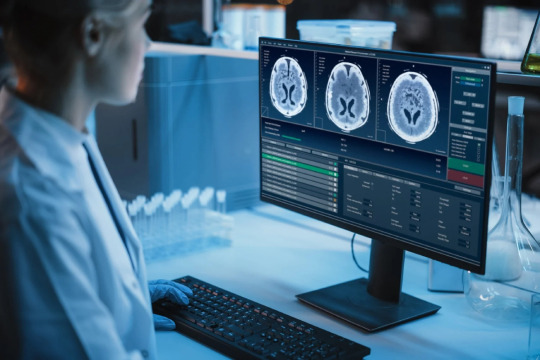
Cancer, a formidable adversary claiming millions of lives annually, has long posed a significant challenge to medical science. However, amidst the grim statistics, recent breakthroughs are ushering in a new era of hope and progress in the battle against this relentless disease. Dr. Ashish Gupta, USA trained, American board-certified medical oncologist and Chief of Medical Oncology at Unique Hospital Cancer Centre, Dwarka India, stands at the forefront of these advancements
Cancer: A Complex Enemy
Cancer, characterized by the uncontrollable proliferation of cells within the body, remains enigmatic in its origins and elusive in its treatment. While no singular cause can be pinpointed, certain factors, such as smoking, radiation exposure, and genetic predisposition, heighten the risk of developing this formidable illness. Dr. Ashish Gupta emphasizes the importance of understanding these risk factors to navigate prevention strategies effectively.
Prevention: Navigating Risk Factors
In the quest for prevention, awareness and avoidance of these risk factors play a pivotal role. Empowering individuals with knowledge about lifestyle choices and environmental influences can mitigate the likelihood of cancer development. Dr. Ashish Gupta‘s expertise guides patients in making informed decisions to reduce their susceptibility to this disease.
Immunotherapy: Harnessing the Body’s Defenses
Immunotherapy emerges as a groundbreaking frontier in cancer treatment, leveraging the body’s own immune system to combat malignancies. This innovative approach, often integrated with conventional methods like surgery and chemotherapy, shows promise across diverse cancer types, including breast, lung, and melanoma. While hailed for its efficacy, immunotherapy may entail side effects such as fatigue and autoimmune reactions, underscoring the need for comprehensive patient care overseen by experts like Dr. Ashish Gupta.
Targeted Therapy: Precision in Action
Targeted therapy, another cutting-edge modality, zeroes in on specific genetic aberrations driving cancer growth. By thwarting molecular targets implicated in tumorigenesis, this tailored approach offers renewed hope for patients resistant to traditional treatments. With ongoing research yielding a myriad of targeted therapies, the horizon of cancer management expands exponentially under the guidance of specialists like Dr. Ashish Gupta.
Photodynamic Therapy (PDT): Illuminating New Paths
PDT illuminates the realm of cancer treatment with its light-activated approach to cell eradication. By sensitizing tumors to specialized light sources, this technique exerts precise cytotoxic effects, holding promise for various malignancies, from skin to pancreatic cancer. As an adjunct to conventional modalities, PDT enhances treatment efficacy while minimizing adverse effects, bolstering its appeal as a safe and efficacious option, endorsed by experts like Dr. Ashish Gupta.
Hyperthermia: Heating Up the Fight
Harnessing the power of heat, hyperthermia emerges as a formidable contender in the arsenal against cancer. Whether administered externally or internally, thermal energy targets and destroys cancerous cells, offering a non-invasive alternative across a spectrum of malignancies. As ongoing research refines techniques and expands applications, hyperthermia continues to carve its niche in the landscape of cancer care, guided by leaders in the field such as Dr. Ashish Gupta.
Embracing Hope: Charting a Brighter Future
As the dawn of a new era in cancer treatment unfolds, optimism pervades the medical community and instills hope in patients worldwide. With an array of innovative therapies at their disposal, clinicians stand poised to confront cancer with unprecedented precision and efficacy, led by pioneers like Dr. Ashish Gupta. With each advancement, the trajectory of this age-old battle veers closer towards triumph, illuminating a future where cancer’s grip is loosened, and lives are transformed.
Conclusion
In the relentless pursuit of a cure, the latest advancements in cancer treatment herald a paradigm shift in the fight against this formidable foe. From immunotherapy and targeted therapy to photodynamic therapy and hyperthermia, these cutting-edge modalities offer new avenues of hope and healing for patients and families affected by cancer. As research continues to push the boundaries of innovation, the promise of a brighter, cancer-free future grows ever nearer under the guidance of experts like Dr. Ashish Gupta.
#best oncologist in delhi ncr#best oncology doctor in delhi#cancer tratment in dwakra#unique cancer hospital#top oncologists in dwarka
0 notes
Text
5 LIFESTYLE HABITS THAT COULD BE PUTTING YOU AT RISK FOR CANCER

A well-balanced diet rich in nutrients is essential for maintaining a healthy body and reducing the risk of cancer. Here’s how different food groups contribute to cancer prevention, according to Dr. Ashish Gupta, a USA trained, American board-certified medical oncologist, and Chief of Medical Oncology at Unique Hospital Cancer Centre, Dwarka, India:
Fruits and Vegetables: Packed with vitamins, minerals, and antioxidants, fruits and vegetables play a crucial role in reducing the risk of various cancers, especially those affecting the digestive system. Incorporating a variety of colorful fruits and vegetables into your diet can provide protective benefits against cancer.
Whole Grains and Legumes: Opting for whole grains like brown rice, oats, and whole wheat, along with legumes such as lentils and beans, can help lower the risk of colorectal cancer. These fiber-rich foods aid in digestion and promote overall gut health.
Lean Proteins: Choose lean sources of protein such as fish, poultry, tofu, nuts, and seeds over processed meats like bacon and sausage. Processed meats have been linked to an increased risk of colorectal cancer, making it advisable to limit their consumption, especially in children.
Healthy Fats: Incorporating sources of healthy fats like olive oil, avocados, and nuts into your diet can help reduce the risk of certain cancers. Conversely, diets high in saturated and trans fats, often found in processed and fried foods, may increase cancer risk, particularly prostate cancer.
Dairy and Alternatives: Opt for reduced-fat dairy products and alternatives to maintain a healthy balance of calcium and protein in your diet. High intake of dairy fat has been associated with an elevated risk of prostate cancer, so moderation is key.
Lifestyle Factors and Cancer Risk
Dr Ashish Gupta said, in addition to diet, several lifestyle factors can influence the likelihood of developing cancer. Here are some important considerations:
Smoking: Tobacco use is the leading cause of lung cancer worldwide. Quitting smoking and avoiding second-hand smoke are crucial steps in reducing the risk of lung cancer and other smoking-related cancers.
Physical Activity: Regular exercise not only helps maintain a healthy weight but also reduces the risk of various cancers, including breast and colon cancer. Aim for at least 150 minutes of moderate-intensity exercise per week.
Alcohol Consumption: Limiting alcohol intake can significantly lower the risk of several cancers, such as those of the mouth, throat, esophagus, liver, and breast. It’s recommended to adhere to moderate drinking guidelines to minimize cancer risk.
Sun Protection: Protecting your skin from harmful UV rays by wearing sunscreen, protective clothing, and seeking shade can reduce the risk of skin cancer, including melanoma.
Specific Foods and Their Impact on Cancer Risk
Understanding how certain foods can affect the risk of specific types of cancer is crucial for making informed dietary choices. Here’s a closer look at some common cancers and dietary recommendations by Dr Ashish Gupta:
Lung Cancer: While fruits and vegetables offer some protection against lung cancer, the most effective prevention strategy remains avoiding tobacco smoke, including second-hand smoke.
Breast Cancer: Incorporating mono-unsaturated fats from sources like olive oil and increasing vegetable intake can help reduce the risk of breast cancer. Limiting alcohol consumption is also important for breast cancer prevention.
Prostate Cancer: Men can reduce their risk of prostate cancer by maintaining a healthy weight, consuming vegetables like tomatoes rich in lycopene, and avoiding a high-fat diet predominantly from animal sources.
Bowel Cancer: A diet high in fiber from vegetables and grains, along with limited consumption of red and processed meats, can help lower the risk of bowel cancer. Additionally, maintaining an active lifestyle is beneficial.
Conclusion
In conclusion, adopting a healthy diet and lifestyle can significantly reduce the risk of developing cancer. As per Dr Ashish Gupta, incorporating nutrient-rich foods, engaging in regular physical activity, and avoiding harmful habits like smoking and excessive alcohol consumption, you can take proactive step
#best oncologist in delhi ncr#best oncology doctor in delhi#cancer tratment in dwakra#unique cancer hospital#top oncologists in dwarka#cancer doctor in delhi#best doctor for breast cancer#breast cancer treatment in delhi#lung cancer specialists#lung cancer treatment in delhi
0 notes
Text
10 WARNING SIGNS OF SKIN CANCER YOU SHOULD NEVER IGNORE

Early detection is crucial in the fight against cancer. Alongside regular screenings and check-ups, paying attention to changes in your body can aid in catching cancer at its earliest stages. Recognizing warning signs and symptoms can prompt timely medical intervention, potentially improving treatment outcomes. Here are 10 symptoms that may indicate the presence of cancer and warrant a consultation with your healthcare provider, as emphasized by Dr. Ashish Gupta, USA trained, American board-certified medical oncologist, Chief of Medical Oncology at Unique Hospital Cancer Centre in Dwarka, India
Abnormal Periods or Pelvic Pain: While irregular periods and occasional pelvic discomfort are common, persistent changes in your menstrual cycle or chronic pelvic pain could signal underlying gynecological cancers such as cervical, uterine, or ovarian cancer.
Changes in Bathroom Habits: Significant alterations in bowel or bladder habits, including persistent constipation or diarrhea, blood in stool or urine, and increased frequency of urination, may indicate colorectal, prostate, or bladder cancer.
Bloating: Chronic bloating lasting more than two weeks can be a red flag for ovarian cancer and various gastrointestinal malignancies. Monitoring and reporting persistent bloating to your doctor is crucial for timely evaluation.
Breast Changes: New breast lumps, skin dimpling, nipple changes, or unusual discharge should be promptly evaluated, as they may signify breast cancer. It’s important to note that breast cancer can affect men as well.
Chronic Coughing: A persistent cough, especially if dry, lasting more than two weeks could be a warning sign of lung cancer. Early detection through medical assessment is essential for timely intervention.
Chronic Headache: Headaches persisting for more than two weeks and unresponsive to typical treatments may be associated with brain tumors. Seeking medical attention for prolonged headaches is paramount for accurate diagnosis and management.
Difficulty Swallowing: Persistent difficulty in swallowing, sensation of food sticking in the throat, or throat pain lasting more than two weeks may indicate throat, lung, or stomach cancer and warrants medical evaluation.
Excessive Bruising: Sudden onset of unexplained bruises in unusual locations, not attributable to injury, may indicate underlying blood cancers. Prompt medical assessment is necessary for proper diagnosis and management.
Frequent Fevers or Infections: Recurrent fevers or frequent infections may suggest compromised immunity, possibly due to conditions such as lymphoma or leukemia. Timely medical evaluation is essential for appropriate management.
Oral Changes: Persistent oral sores, lesions, or painful areas, particularly in individuals with a history of smoking or heavy alcohol consumption, should be evaluated for potential oral cancers.
Skin Changes: Changes in the appearance of moles or birthmarks should be monitored closely. Utilizing the ABCDE mnemonic-Asymmetry, Border irregularity, Color variation, Diameter increase, and Evolution-can aid in identifying concerning skin changes that warrant medical attention.
Persistent Pain: Unexplained and persistent pain lasting beyond standard treatment duration requires medical assessment to rule out underlying malignancies.
Persistent Fatigue: Sudden and persistent fatigue unrelated to changes in activity level or sleep patterns may indicate underlying hematological cancers such as leukemia or lymphoma and necessitates medical evaluation.
Postmenopausal Bleeding: While postmenopausal bleeding may have various causes, persistent occurrences should prompt evaluation for cervical or uterine cancer.
Stomach Pain or Nausea: Unexplained stomach discomfort or persistent nausea lasting more than two weeks should be investigated, as they may indicate gastrointestinal or abdominal cancers.
Unexplained Weight Loss: Significant unintentional weight loss or loss of appetite without apparent cause could be indicative of various cancers, particularly those that have metastasized.
Unusual Lumps: Any new or persistent lumps or masses should be evaluated by a healthcare professional to rule out potential malignancies, especially if accompanied by other concerning symptoms.
Conclusion
Recognizing early warning signs of cancer and promptly consulting a healthcare provider for evaluation is crucial for timely diagnosis and treatment. By being vigilant and proactive about changes in your body, you can play an active role in safeguarding your health and well-being. If you are searching for the best dr in dwarka contact Dr. Ashish Gupta
#Skin Cancer in Delhi#Skin Cancer Doctor in Dwarka#best Skin Cancer Speaclist#top oncologists in dwarka#best oncologist in delhi ncr#best oncology doctor in delhi#cancer tratment in dwakra#unique cancer hospital#best doctor for breast cancer#cancer doctor in delhi#breast cancer treatment in delhi#lung cancer specialists#lung cancer treatment in delhi
0 notes
Text
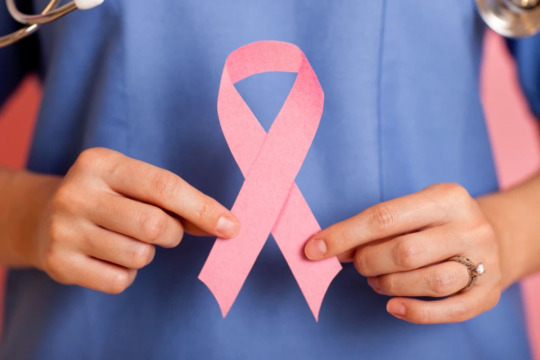
HOW HORMONE THERAPY COULD CHANGE THE LIVES OF BREAST CANCER PATIENTS IN INDIA?
Breast cancer is a significant health concern worldwide, affecting millions of women each year. In India, the prevalence of breast cancer is on the rise, with many patients seeking effective treatment options to combat this disease. One promising avenue of treatment that has gained attention in recent years is hormone therapy. Led by experts like Dr. Ashish Gupta USA trained, American board-certified medical oncologist, Chief of Medical Oncology, Unique Hospital Cancer Centre, Dwarka, India, hormone therapy is changing the landscape of breast cancer treatment in India.
#best oncologist in delhi ncr#best oncology doctor in delhi#unique cancer hospital#top oncologists in dwarka#Best Doctor For Breast Cancer#Breast Cancer Treatment In Delhi
0 notes
Text

HOW TO SPOT EARLY SYMPTOMS OF COLON CANCER
Colorectal cancer encompasses both colon cancer and rectal cancer, two closely related conditions occurring in the lower digestive tract. Due to their proximity and shared characteristics, they are often discussed together. The colon serves as a reservoir for waste and plays a crucial role in absorbing water and nutrients from food, while the rectum functions to expel waste from the body. Dr. Ashish Gupta USA trained, American board-certified medical oncologist, Chief of Medical Oncology, Unique Hospital Cancer Centre, Dwarka, India, have shared detailed knowledge about the topic.
#best oncologist in delhi ncr#best oncology doctor in delhi#cancer tratment in dwakra#top oncologists in dwarka#unique Cancer hospita;l
0 notes
Text

CANCER AND MENTAL HEALTH: MANAGING ANXIETY, DEPRESSION, AND THE EMOTIONAL JOURNEY
Cancer can be a tough journey, not just physically but mentally too. It’s natural to feel anxious, sad, or overwhelmed when facing a cancer diagnosis or undergoing treatment. Dr Ashish Gupta USA trained, American board-certified medical oncologist, Chief of Medical Oncology, Unique Hospital Cancer Centre, Dwarka India, sheds light on how to cope with these emotions and manage your mental health during this challenging time.
#best oncologist in delhi ncr#best oncology doctor in delhi#cancer tratment in dwakra#top oncologists in dwarka#unique Cancer hospital centre
0 notes
Text
CANCER AND MENTAL HEALTH: MANAGING ANXIETY, DEPRESSION, AND THE EMOTIONAL JOURNEY

Cancer can be a tough journey, not just physically but mentally too. It's natural to feel anxious, sad, or overwhelmed when facing a cancer diagnosis or undergoing treatment. Dr Ashish Gupta USA trained, American board-certified medical oncologist, Chief of Medical Oncology, Unique Hospital Cancer Centre, Dwarka India, sheds light on how to cope with these emotions and manage your mental health during this challenging time.
Understanding the Emotional Impact of Cancer
Receiving a cancer diagnosis can stir up a whirlwind of emotions. Fear, uncertainty, sadness, and anger are common reactions. It's essential to acknowledge and accept these feelings rather than pushing them aside. Ignoring your emotions can lead to increased stress and anxiety.
Coping Strategies
Seek Support: You do not have to go through this journey alone. Contact friends, family, or support groups for emotional support. Speaking with others who have gone through similar experiences can be reassuring.
Stay informed: Knowledge is power. Inform yourself about your diagnosis, treatment options, and what to expect. Understanding the process can help alleviate some of the anxiety associated with the unknown.
Practice self-care: Take good care of yourself, both physically and emotionally. Eat healthily, exercise regularly, get enough sleep, and spend time doing things you enjoy. Deep breathing, meditation, and yoga are all relaxation techniques that can help with stress reduction.
Stay Positive: While it's normal to have moments of fear and doubt, try to focus on the positives in your life. Surround yourself with uplifting people and activities that bring you happiness.
Managing Anxiety and Depression
Anxiety and depression are common among cancer patients, but they can be managed with the right support and resources.
Talk to Your Doctor: Be open and honest with your healthcare team about how you're feeling. They can provide resources and referrals to therapists or counsellors who specialise in cancer-related mental health.
Consider Therapy: Therapy can provide a safe space to explore your emotions and develop coping strategies. Cognitive-behavioural therapy (CBT) is particularly effective in treating anxiety and depression in cancer patients.
Medication: In some cases, antidepressants or anti-anxiety medications may be prescribed to alleviate symptoms. It is critical to discuss any concerns or side effects with your physician.
The Importance of Supportive Care
Cancer treatment isn't just about treating the physical disease; it's also about supporting the whole person. Cancer hospitals like the one where Dr. Ashish Gupta practices offer a range of supportive care services to help patients cope with the emotional aspects of their diagnosis.
Psychosocial Support: Cancer hospitals have dedicated teams of psychologists, social workers, and counsellors who specialise in providing emotional support to patients and their families.
Support Groups: Participating in support groups allows patients to connect with others who are going through similar experiences. It provides a sense of camaraderie and validation, knowing that you're not alone in your struggles.
Complementary Therapies: Many cancer hospitals offer complementary therapies such as art therapy, music therapy, and acupuncture to help reduce stress and improve emotional well-being.
In conclusion, managing the emotional impact of cancer is an essential part of the treatment journey. By seeking support, staying informed, practising self-care, and accessing the resources available at Unique Hospital Cancer Centre, patients can navigate this challenging time with resilience and strength. Remember, it's okay to ask for help, and remember you're not alone on this journey.
#best oncologist in delhi ncr#best oncology doctor in delhi#cancer tratment in dwakra#top oncologists in dwarka
0 notes
Text
Dr. Ashish Gupta: Delivering Excellence as the Best Oncologist in Dwarka
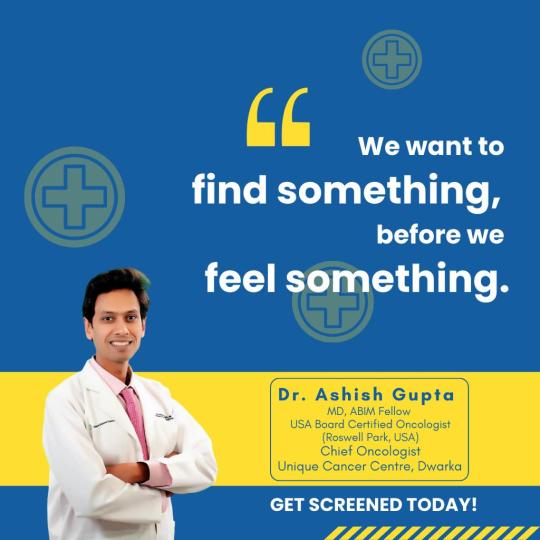
Dr. Ashish Gupta is the best oncologist in Dwarka, Delhi, and stands at the forefront of cancer care. With a distinguished reputation as the best oncologist in Delhi, Dr. Gupta's expertise and dedication have earned him the trust of countless patients seeking superior healthcare.
What sets Dr. Gupta apart is his unwavering commitment to providing the best affordable cancer treatment in Delhi. Understanding the financial burden cancer can bring, he ensures that cost remains a minimal concern for patients, making advanced cancer care accessible to all.
As the best oncology doctor in Delhi, Dr. Gupta leads a team of skilled professionals who share his vision of patient-centric care. Their focus is on integrating cutting-edge advancements in oncology to design personalized treatment plans tailored to each individual's unique needs.
With a specialization as the best cancer specialist in Delhi, Dr. Gupta's comprehensive approach to cancer management covers early detection, precise diagnosis, and an array of treatment options, including state-of-the-art therapies. For appointments and inquiries, you can reach Dr. Ashish Gupta at 078278 37031. His clinic's convenient location in Dwarka ensures easy accessibility, making it a trusted destination for those seeking top-quality, best and affordable cancer care in Delhi.
#best oncologist in delhi#best oncologist in dwarka#best and affordable cancer care in Delhi#best cancer specialist in Delhi#best oncology doctor in Delhi
0 notes